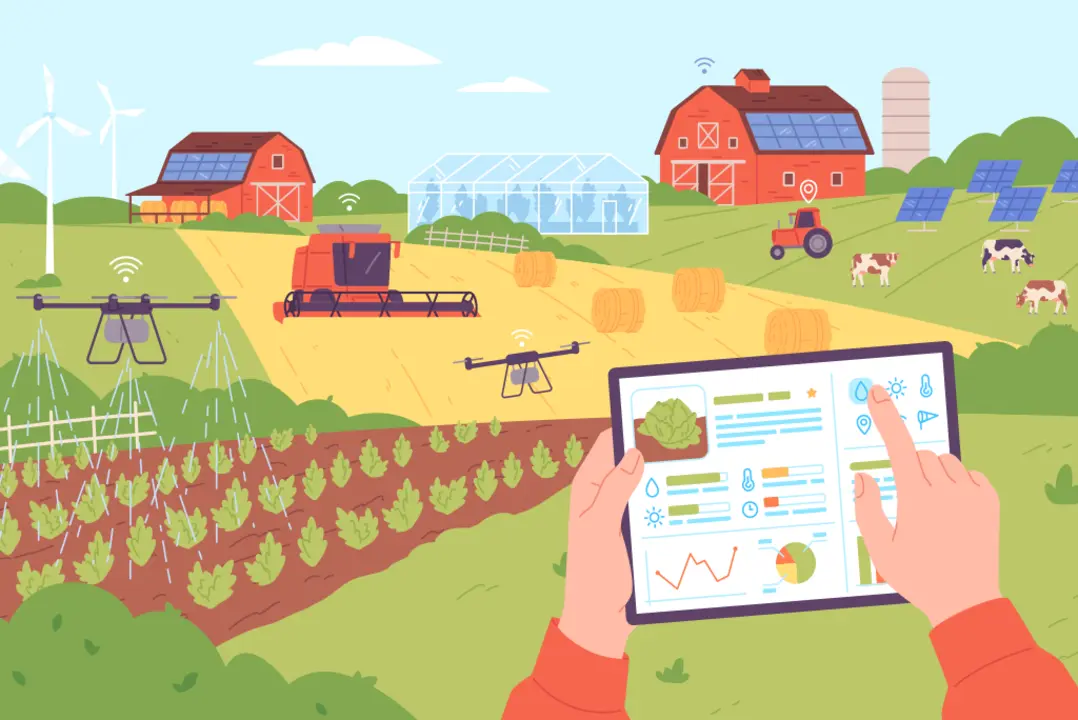How can agriculture benefit from block chain technology?
-
May, 24 2023
-
0 Comments

Introduction to Blockchain in Agriculture
As a tech-savvy blogger, I have been following the growing influence of blockchain technology in various industries. Recently, I came across the potential of blockchain in the agriculture sector, and I couldn't help but dive deeper into this fascinating subject. In this article, I will be discussing how agriculture can benefit from blockchain technology, by exploring various commercial applications and their potential impact on the industry as a whole. So, let's get started!
Enhancing Supply Chain Transparency
One of the main advantages of using blockchain technology in agriculture is the increased transparency it can bring to the supply chain. By using a decentralized and tamper-proof digital ledger, all transactions and records can be securely stored and shared among participants in the supply chain. This ensures that everyone has access to accurate information, reducing the risk of fraud and enabling better decision-making throughout the process.
As a result, consumers can have more confidence in the origin and safety of their food, while farmers can receive fair compensation for their products. This level of transparency can also help build trust among supply chain partners, leading to stronger relationships and improved collaboration.
Food Safety and Traceability
Blockchain technology can play a significant role in enhancing food safety and traceability. By tracking products from farm to fork, it becomes easier to identify the source of potential contamination or quality issues. This allows for quicker and more effective responses in case of recalls or foodborne illness outbreaks.
Moreover, this traceability can also help consumers make informed decisions about the food they purchase. By providing detailed information about the production process, including the use of pesticides and fertilizers, consumers can choose products that align with their values and preferences.
Smart Contracts and Payments
Smart contracts are self-executing contracts with the terms of the agreement directly written into code. These contracts can be executed automatically when certain conditions are met, reducing the need for intermediaries and increasing efficiency. In the context of agriculture, smart contracts can be used to facilitate transactions between farmers, suppliers, and buyers.
For instance, a smart contract could be set up to release payment to a farmer as soon as their produce is delivered to a buyer, ensuring timely compensation and reducing the risk of disputes. This can be particularly beneficial for small-scale farmers who often struggle with cash flow issues.
Access to Finance and Insurance
Blockchain technology can also help farmers gain access to finance and insurance services. By providing a secure and transparent record of a farmer's transactions and production history, financial institutions can more accurately assess creditworthiness and offer loans or insurance policies tailored to the farmer's needs.
This increased access to financial services can enable farmers to invest in new technologies or expand their operations, ultimately leading to increased productivity and income.
Reducing Food Waste
Food waste is a significant problem worldwide, with substantial environmental, social, and economic consequences. Blockchain technology can help reduce food waste by improving the efficiency of the supply chain and enabling better tracking and management of perishable goods. By providing real-time information on the status of products, blockchain can enable more accurate demand forecasting and inventory management, reducing the likelihood of overstocking and spoilage.
Additionally, blockchain can facilitate the sharing of surplus food among supply chain partners, ensuring that unused products find a home rather than going to waste.
Environmental Sustainability
Incorporating blockchain technology into agriculture can also contribute to environmental sustainability. For example, blockchain can be used to track and verify the environmental impact of farming practices, such as carbon emissions or water usage. This can help incentivize farmers to adopt more sustainable practices, as well as enable consumers to support environmentally responsible products.
Furthermore, blockchain can facilitate the trading of environmental assets, such as carbon credits or ecosystem services, providing additional revenue streams for farmers who engage in sustainable practices.
Quality Assurance and Certification
Blockchain can streamline the process of quality assurance and certification in the agriculture sector. By securely storing data related to production methods, inputs, and quality inspections, blockchain can simplify the process of verifying compliance with industry standards and regulations.
This can reduce the time and cost associated with certification processes, making it more accessible for small-scale farmers and contributing to a more level playing field within the industry.
Conclusion: The Future of Agriculture and Blockchain
As we can see, blockchain technology has the potential to revolutionize the agriculture industry in numerous ways. From improving supply chain transparency to facilitating access to finance, blockchain can address many of the challenges faced by farmers, consumers, and other stakeholders in the sector.
As the technology continues to evolve and mature, it will be fascinating to watch how the adoption of blockchain in agriculture unfolds. I, for one, am excited to see the positive impact it can have on our food systems, our environment, and the livelihoods of farmers around the world.